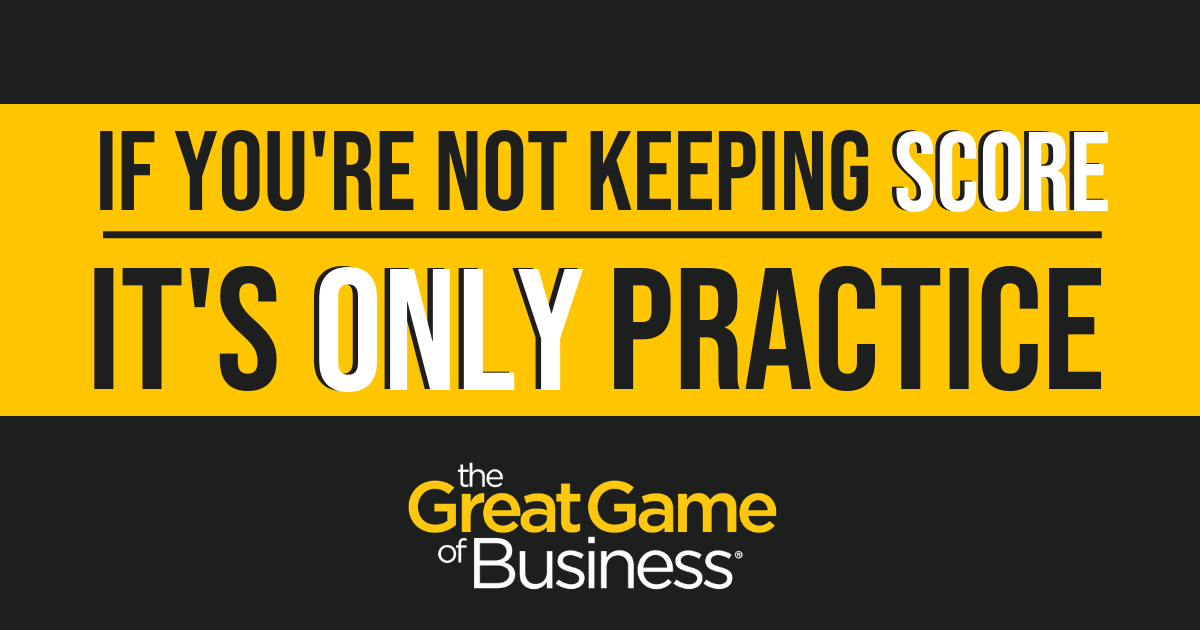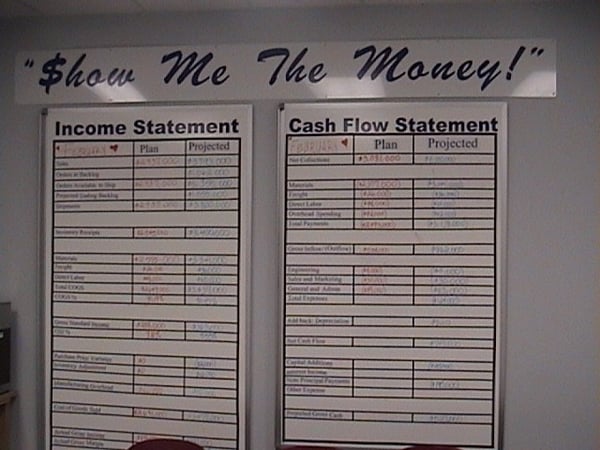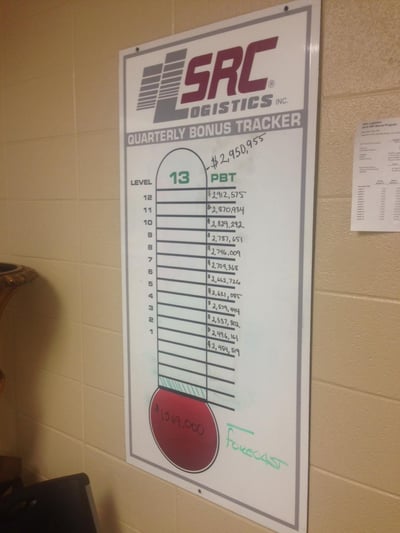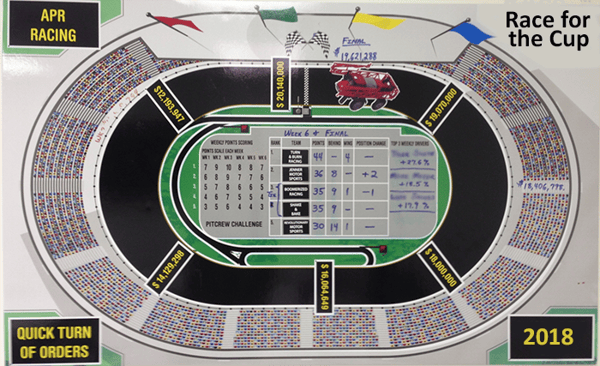
Winners are fanatics about keeping score. They understand that if you’re not keeping score, you’re not playing for real.
Whether in business or in a game, the primary objective of keeping score is to consistently inform the players if they are winning or losing and who is accountable... moving the process of keeping score from “them measuring us” to “us measuring ourselves.” Keeping score gives people the critical feedback they need to make the right adjustments, improve performance, and win the game.
As Rich Armstrong and Steve Baker write in Get in the Game,
"In sports, we enjoy the game because we can easily follow the action and keep score—the stories behind the score, what individual actions and team accomplishments changed the score, what plays made the difference, and ultimately how The Game was won. Every sport has its scoreboard, scorecards, and team stats—and so must every business.
However, unlike sports, too many businesses are running their companies by focusing their players on the stats and only the stats, all without ever really knowing if they’re winning or losing. They have no visibility to the center-court scoreboard (the financials). The people who have their hands on the ball and therefore the greatest opportunity to change the score and win The Game have no idea where to take aim."
Where are the Scoring Opportunities?
Keeping track of scoring opportunities in a business can be done with a variety of different scoreboards. But keep in mind, all scoreboards should be engaging, relevant, and highly visible and promote immediate, consistent feedback and accountability.
-
Financial Scoreboard: an example of this is a simplified profit & loss statement (P&L) or your sales pipeline. Use these scoreboards as the focus of your Huddle, assign individual line-item accountability, and do the calculations as a team to reinforce how the numbers affect the bottom line. As a helpful point of reference, on your scoreboard include your Plan number, prior year performance, the line owner's name, as well as forecasted and actual performance.

-
Critical Number™ Scoreboard: this scoreboard is keyed in on the company's Critical Number, and includes your Plan number and how the team is tracking towards the bonus payout.

-
Team ‘Driver-Based’Scoreboards: these cascading scoreboards (if on the wall) / scorecards (if hand-held) create line of sight for individual employees, feeding their numbers through their work group and department, and ultimately the company-wide financial scoreboard.

-
MiniGame™ Scoreboards: these are fun, theme-based scoreboards that help teams track their departmental or company-wide MiniGames.

-
Player Scorecards: less frequently-used, Player Scorecards help individuals track their daily, weekly and monthly goals that feed into work group and departmental scorecards. Like the other scorecards/scoreboards, these are only effective if they are maintained by the player(s) being measured - in this case, the individual - otherwise, it's just a performance evaluation and has little motivational effect.

There's a Right Way to Keep S.C.O.R².E.
It’s important to cascade scorecards down through the company so that everyone knows in real time how their decisions and actions are impacting financial results. To ensure your scoreboards clearly inform all the players if they are winning or losing follow these few simple rules:
Simple – Easily viewed & understood at a glance (the 3-second rule)
Center court – Accessible for all to see
Owner scored – Team created, team owned, and team scored
Right measures – Critical Numbers & the Right Drivers (measure what's important, not what's easy)
Real time – Frequently updated & forward looking
Engaging – Relevant, meaningful, & maybe a little FUN!
In addition to knowing WHAT to keep score on, be deliberate about HOW you keep score in order to maximize the benefits of keeping score. But in the end, remember that scoreboards are simply tools - they are only as good as the communication and actions you create around them, so don't forget to establish a strong Huddle rhythm and engaging MiniGames to really drive results.
Learn more about effectively keeping score and driving results in our Discover the Game virtual workshop and new book:
Other articles you might like:
.png)








.png)




-5.png)

